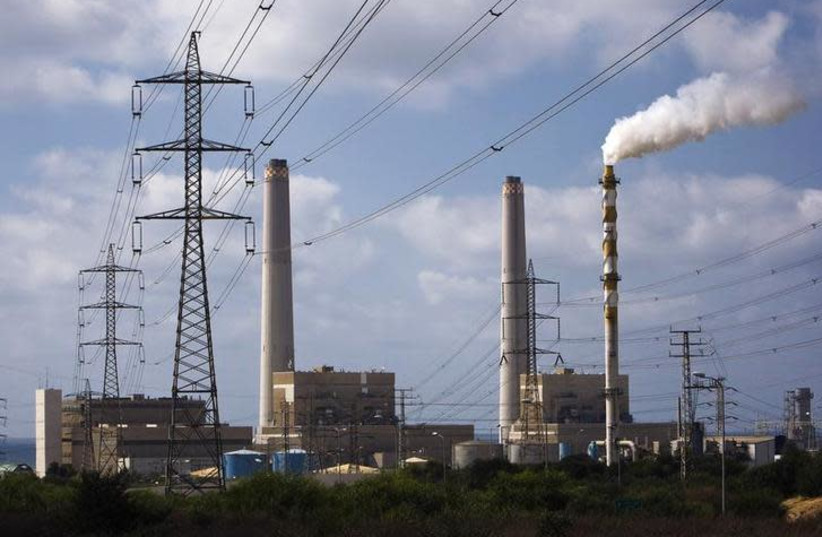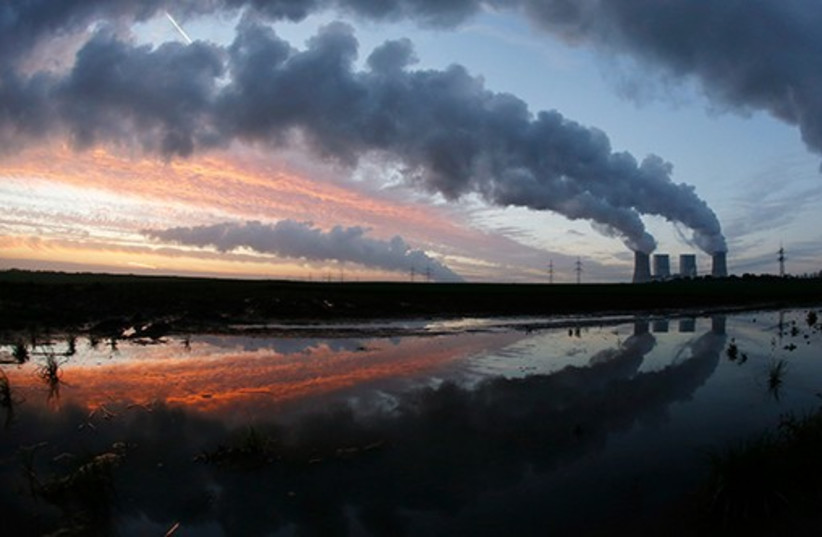The OECD highlighted how the discovery of offshore gas fields led Israel to transition out of coal and toward natural gas for electricity generation and improved the country’s energy security.
Published: APRIL 4, 2023
Environment and Climate in the Middle East editor’s note: read beyond the headline

(photo credit: AMIR COHEN/REUTERS)
Israeli greenhouse gas (GHG) emissions have fallen by around 10% per capita in the past decade, according to the latest OECD Economic Survey of the country.
However, emissions from transportation, industrial processes and waste have continued to increase enormously, while the expansion of renewable energy faces several barriers.
“The emission intensity of the economy has declined, but air pollution remains a concern,” the report released on Monday said. “Most Israelis are still exposed to heavy small-particle pollution, well above the WHO [World Health Organization]-recommended limit of 10 micrograms per m3 [cubic meter of air].”
How does Israel’s offshore gas reserves factor in?
The OECD highlighted how the discovery of offshore gas fields led Israel to transition from coal to natural gas for electricity generation and improved the country’s energy security.
To decarbonize the electricity sector – the most significant GHG emitter at 40% of total emissions – a boost in renewable energy is required.
Greenhouse gases (credit: REUTERS)
“Relying predominantly on natural gas will jeopardize the needed deep decarbonization in the absence of widespread deployment of carbon capture and storage technologies.”OECD report
“Relying predominantly on natural gas will jeopardize the needed deep decarbonization in the absence of widespread deployment of carbon capture and storage technologies,” the report said.
However, the expansion of renewable energy faces challenges, including the high price tag on building grid and storage capacity and the absence of streamlined permit procedures.
“Higher fuel excise taxes on natural gas would make renewable energy production more competitive. In addition, gas-fired power plants would have value as a backup to produce dispatchable electricity to offset the intermittency of renewables,” according to the OECD.
The report also recommended that Israel export its natural gas to countries where it could help reduce coal use and import renewable energy from neighboring countries to complement domestic generation.
Israel recently signed a declaration of intent with the United Arab Emirates and Jordan to provide Israel with solar electricity in exchange for desalinated water.
The Environmental Protection Ministry has estimated that if solar panels were adequately distributed, solar installations could generate 40% of total electricity generation in Israel by 2030. Currently, only around 10% of Israeli energy comes from solar.
Authorities have set ambitious emissions goals, including reducing new emissions by 27% by 2030, and 85% by 2050.
“A National Action Plan on Climate Change for 2022–26 defines more than a hundred measures to reduce emissions from electricity, transportation, industry, buildings and waste. However, the contribution of the measures to the reduction targets has not yet been quantified. In addition, the bill has not yet been approved by parliament, which would strengthen government accountability,” the report said.
Transportation is the second-largest generator of greenhouse gases, accounting for around 40% of all emissions. The report recommended expanding the quality of bus services in the short term and completing the development of a metro in Tel Aviv by 2032 in the long run.
https://www.jpost.com/environment-and-climate-change/article-736381

